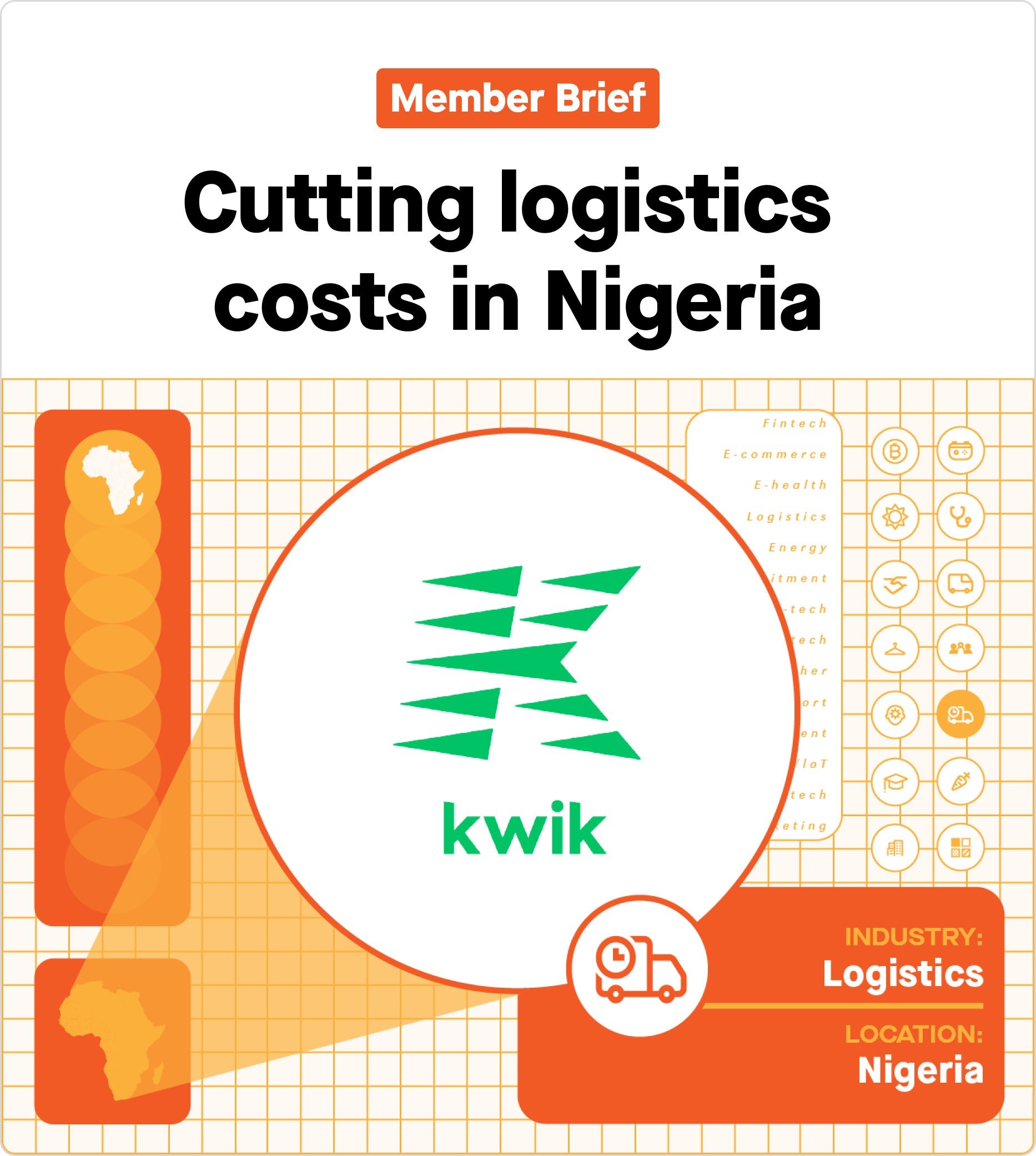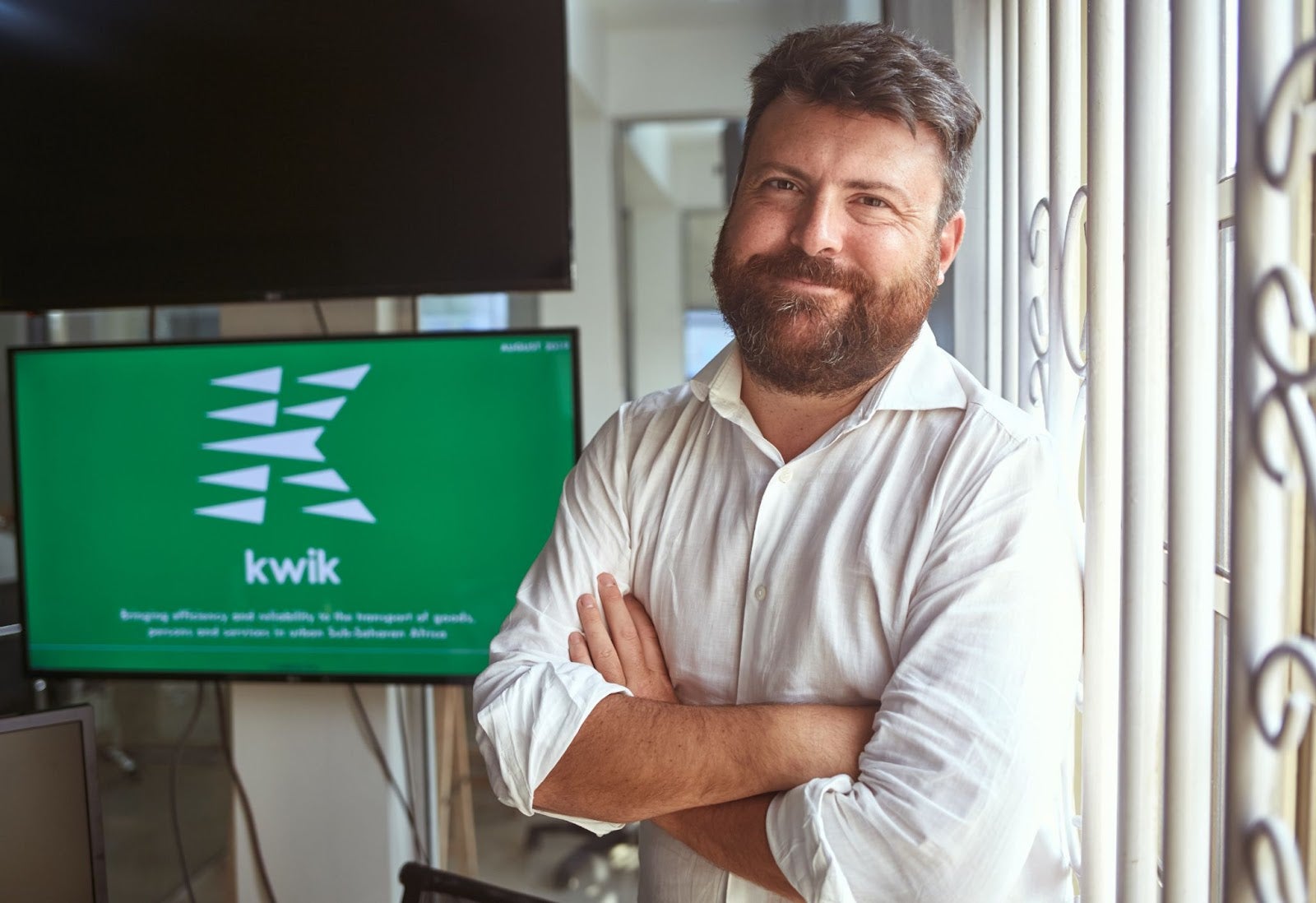✦ Cutting logistics costs in Nigeria
Can technology add what lacks in infrastructure?


Hi Quartz Africa members,
Logistics and transportation costs in Africa are among the most expensive in the world.
These high costs hurt businesses of all sizes, including the growing number of vendors and traders selling online. But where there’s a challenge, there’s opportunity: logistics and e-commerce startups in Africa have increasingly been attracting venture capital (VC) funding, becoming the second-most well funded sector after fintech.
The rapid growth of the e-commerce market in particular highlighted the need for reliable logistics solutions for businesses and individuals selling goods and services via digital platforms. In Nigeria, which ranked 112 out of 160 countries on the Global Logistics Performance Index 2018, e-commerce revenues grew to $6.9 billion in 2021, driven by sectors such as fashion, electronics, furniture, food, and personal care products.
In an analysis of Nigeria’s logistics market, the International Trade Administration (ITA), an agency in the US Department of Commerce, observed that end-users and businesses often bear the brunt of the under-developed logistics market in Nigeria. It highlighted a raft of big challenges hindering the growth of the $696 million market, and an opportunity to leverage technology to increase efficiency in the sector
Cheat Sheet
💡The opportunity: Tech-enabled logistics and transportation solutions can bring down the cost of doing business.
🤔The challenge: Poor infrastructure, lack of a centralized addressing system, corruption, and multiple taxation make transports and logistics harder and more expensive.
🗺️The roadmap: Startups need to provide cost-effective logistics and transportation solutions for businesses and individuals.
💰The stakeholders: Startups, logistics and transportation service providers, government agencies, and tax authorities.
By The Digits
112: Nigeria’s ranking out of 160 countries in the World Bank’s Global Logistics Performance Index
200%: How much more expensive average road freight charges in Africa are, compared to the rest of the world
$6.9 billion: E-commerce revenues in Nigeria in 2021
12%: The projected average growth of Nigeria’s e-commerce market between 2021 and 2025, double the global average of 6%
$696 million: The value of the logistics market in Nigeria, as of 2018
Case Study
Startup: Kwik
HQ: Lagos, Nigeria
Kwik, a logistics startup, launched officially in Nigeria in 2019. It offers delivery, payment, and fulfillment services for businesses and individuals. In July 2022, it launched Kwikstore, an e-commerce offering targeting social vendors. Kwikstore allows vendors to quickly create an online storefront without requiring technical knowledge.
Using unique store links, vendors can promote their goods and services across social and messaging platforms. These are also integrated with Kwik’s delivery service, allowing vendors to fulfill orders.
Anyone with a qualifying motorbike, van, or truck can sign up to become a rider, or “Kwikster,” on the delivery platform. Kwik promises to deliver packages within two hours in Lagos, Africa’s largest city, with a population of over 17 million. Features of the service include transit insurance, real-time tracking, distance-based pricing, and e-proof of delivery.
Romain Poirot-Lellig, the CEO and founder of Kwik, describes its delivery offering as a “slightly premium” service. Established firms and SMEs represent the bulk of its clients on the delivery side. In January 2022, the company claimed that it had more than 100,000 B2B users.
According to Poirot-Lellig, large companies such as pharma giants and spare parts dealers account for around 40% of their gross merchandise volume. Small businesses based online and offline make up a combined 50% of volume, while banks and law firms account for 10%. He expects more SMEs and online vendors to sign up, due to the introduction of the Kwikstore platform.
“D2C [direct-to-consumer] is a big trend in Africa. We help merchants do that regardless of their size,” he said.
Under its KwikPay brand, the startup also offers payment solutions targeting e-commerce vendors. These include the collection, processing and remittance of cash, card and transfer payments, either online or at the point of delivery on behalf of the vendor.
In March, Kwik announced that it had closed a $2 million Series A round. The round was led by fintech-focused fund XBTO Ventures, and also featured investments from several new and existing shareholders.
Poirot-Lellig told Quartz that the company is profitable. The new funding will enable Kwik to expand its services as it aims to become a “super app” for vendors on the continent. Among features it is looking to introduce are inventory management and financing.
In Conversation With

↗️On whether the launch of Kwikstore is a pivot from deliveries:
“It’s not really a pivot. We want to make the life of merchants in Africa easier, in particular social vendors. We wanted to create the link between the delivery platform and social vending platforms.”
🤑On SMEs overtaking large companies as their biggest clients:
“We expect SMEs using the platform to grow significantly because of Kwikstore and other products we’ll be launching in the course of the year.”
🔨 On one of their major challenges:
“The lack of official street addressing systems is one of the biggest hindrances for the logistics and e-commerce space in Africa. Governments need to address the issue to spur growth in this sector.”
📳On their goal to be a super app:
”We want to provide a one-stop shop where merchants can operate their businesses from their smartphones. This includes financing, inventory management, insurance and deliveries.”
Logistics Deals to Watch
Google was among the investors who took part in a Series B round announced by logistics startup Lori Systems in August 2022. Lori Systems provides digital logistics solutions for cargo transporters. The investment by Google was the third from the $50 million Africa Investment Fund targeted at the continent’s early- and growth-stage startups.
Wasoko, formerly known as Sokowatch, announced in March that it had raised $125 million in a Series B funding round. The startup provides inventory, financing, and logistics solutions for informal retailers in Africa. The investment valued the company at $625 million.
Logistics marketplace Amitruck raised $4 million in a seed funding round in February. The service links cargo owners to transporters via a digital platform. Launched in Kenya in 2019, the startup aims to expand across the continent.
This member brief was prepared while listening to Facetime by Bey T (Kenya). Have a fun, productive week!
—Martin Siele, Nairobi-based Quartz contributor
One 🚚 Thing
As of 2020, Africa represented 27.9% of the global third-party logistics market, worth $961.8 billion. In third-party logistics enterprise design, a company maintains production control but outsources some or all transport and logistics execution to a fulfillment company.